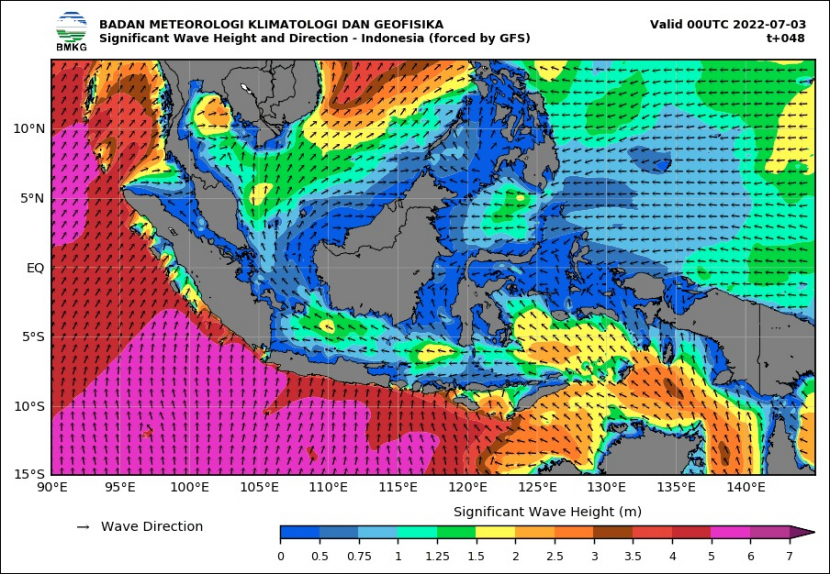Weak Economy Weighs On European Car Sales Figures

Table of Contents
Impact of Inflation and Rising Interest Rates
Inflation and high interest rates are significantly impacting affordability and consumer behavior within the European car market. The increased cost of living, driven by soaring energy prices and food costs, is leaving consumers with less disposable income. This directly translates to a reduction in demand for new vehicles, impacting both the new and used car segments.
-
Increased borrowing costs for car loans: Higher interest rates make financing a new car far more expensive, increasing monthly payments and discouraging potential buyers. This is particularly impactful given the already high cost of vehicles.
-
Reduced consumer spending power due to rising prices: With inflation eroding purchasing power, consumers are prioritizing essential spending over discretionary purchases like new cars. This is leading to a postponement of vehicle purchases, further depressing sales figures.
-
Impact on consumer confidence and delaying major purchases: The uncertain economic climate fuels anxiety, leading consumers to postpone significant expenditures like buying a new car until the economic outlook becomes clearer.
-
Specific examples: For instance, the European Central Bank's interest rate hikes and the double-digit inflation rates witnessed in several countries like the UK and Germany are clear indicators of the economic headwinds facing the automotive industry.
Energy Crisis and its Ripple Effect on the Automotive Sector
The ongoing energy crisis in Europe is creating a double whammy for the car market. It's increasing production costs for manufacturers and simultaneously impacting consumer decisions.
-
Increased production costs due to higher energy prices: The soaring cost of electricity and gas needed for manufacturing processes directly impacts the final price of vehicles, making them less competitive.
-
Supply chain disruptions impacting parts availability: Energy shortages can disrupt supply chains, delaying production and leading to parts shortages. This further limits the output of car manufacturers.
-
Consumer hesitancy due to uncertainty about future energy costs: The uncertainty surrounding future energy prices makes consumers cautious about committing to significant expenses like purchasing a new car, especially those with high energy consumption.
-
Impact on both electric and combustion engine vehicles: While electric vehicles are often marketed as environmentally friendly, the energy crisis impacts them as well, affecting battery production and the availability of electricity for charging. Combustion engine vehicles face higher production costs due to increased fuel prices.
Geopolitical Instability and its Influence on Car Sales
The war in Ukraine and other geopolitical tensions have significantly impacted the European car market, primarily through disrupted supply chains and dampened consumer confidence.
-
Disruptions to supply chains due to sanctions and trade restrictions: The conflict has disrupted the flow of vital components and raw materials, leading to production delays and shortages. Sanctions imposed on Russia have particularly impacted the supply of certain materials.
-
Increased uncertainty about future economic prospects: Geopolitical instability creates an uncertain economic outlook, making businesses and consumers hesitant to make significant investments, including car purchases.
-
Impact on consumer sentiment and investment in the automotive sector: The overall negative sentiment resulting from geopolitical instability affects consumer confidence, further contributing to the decline in car sales.
-
Specific geopolitical events and their impact: The conflict in Ukraine, the ongoing energy crisis linked to Russia's actions, and escalating trade tensions have all contributed to the current challenging environment for the European car industry.
Shifting Consumer Preferences and the Rise of Electric Vehicles (EVs)
While the overall market is declining, consumer preferences are shifting towards electric vehicles (EVs). However, affordability remains a major hurdle.
-
Increased demand for EVs, but affordability remains a challenge: Despite the growing interest in EVs, their higher purchase price compared to traditional vehicles remains a barrier for many potential buyers.
-
Government incentives and regulations driving EV adoption: Government subsidies and policies aiming to promote EV adoption are helping to stimulate demand, but they aren't enough to offset the overall economic downturn.
-
The impact of the charging infrastructure development on EV sales: The expansion of charging infrastructure across Europe is crucial for encouraging EV adoption, but its pace is not yet keeping up with the growing demand.
-
Comparison of EV sales growth versus traditional vehicle sales decline: While EV sales are growing, they are not growing fast enough to compensate for the significant decline in the sales of traditional combustion engine vehicles.
The Future Outlook for European Car Sales
Predicting the future of European car sales is challenging, given the current economic climate and various interacting factors.
-
Potential for a gradual recovery depending on economic conditions: A recovery is possible, but it will heavily depend on improvements in the overall economic situation, including inflation rates and interest rate adjustments.
-
Continued growth in the EV segment, despite economic headwinds: The EV market is expected to continue its growth trajectory, albeit at a potentially slower pace than initially anticipated due to economic factors.
-
The role of government policies in stimulating the market: Government support, including incentives and infrastructure development, will play a crucial role in shaping the future of the European car market.
-
Possible scenarios – optimistic, pessimistic, and most likely: While an optimistic scenario suggests a faster recovery driven by strong government policies, a pessimistic scenario points to prolonged stagnation. The most likely scenario suggests a gradual recovery, coupled with steady growth in the EV sector.
Weak Economy Continues to Cast a Shadow on European Car Sales
In summary, the weak economy, inflation, the energy crisis, geopolitical instability, and evolving consumer preferences have created a perfect storm, impacting European car sales figures significantly. The automotive industry is facing considerable challenges, requiring manufacturers and dealers to adapt to navigate these difficult times. To stay abreast of these ongoing challenges and future trends, stay updated on European car sales, monitor the automotive industry's response to economic challenges, and follow the latest news on the European car market.

Featured Posts
-
 Hujan Di Bandung Ramalan Cuaca 22 April Di Jawa Barat
May 28, 2025
Hujan Di Bandung Ramalan Cuaca 22 April Di Jawa Barat
May 28, 2025 -
 Jackman Joins Lively And Reynolds The Justin Baldoni Lawsuit Fallout
May 28, 2025
Jackman Joins Lively And Reynolds The Justin Baldoni Lawsuit Fallout
May 28, 2025 -
 Dispute Between Ryan Reynolds And Justin Baldoni What The Lawyers Say
May 28, 2025
Dispute Between Ryan Reynolds And Justin Baldoni What The Lawyers Say
May 28, 2025 -
 Bethlehem Election 2024 Scrutiny Of Mayor And Councilwoman Candidates Via Attack Mailers
May 28, 2025
Bethlehem Election 2024 Scrutiny Of Mayor And Councilwoman Candidates Via Attack Mailers
May 28, 2025 -
 Bali United Vs Dewa United Prediksi Skor Head To Head Dan Susunan Pemain
May 28, 2025
Bali United Vs Dewa United Prediksi Skor Head To Head Dan Susunan Pemain
May 28, 2025
Latest Posts
-
 Duncan Bannatynes Charitable Contribution To Children In Morocco
May 31, 2025
Duncan Bannatynes Charitable Contribution To Children In Morocco
May 31, 2025 -
 Duncan Bannatynes Support For Life Changing Childrens Charity In Morocco
May 31, 2025
Duncan Bannatynes Support For Life Changing Childrens Charity In Morocco
May 31, 2025 -
 Bannatynes Ingleby Barwick Padel Court Development Update
May 31, 2025
Bannatynes Ingleby Barwick Padel Court Development Update
May 31, 2025 -
 A Gardeners Guide To Rosemary And Thyme Planting Care And Propagation
May 31, 2025
A Gardeners Guide To Rosemary And Thyme Planting Care And Propagation
May 31, 2025 -
 Padel Courts Construction Underway At Bannatyne Ingleby Barwick
May 31, 2025
Padel Courts Construction Underway At Bannatyne Ingleby Barwick
May 31, 2025
